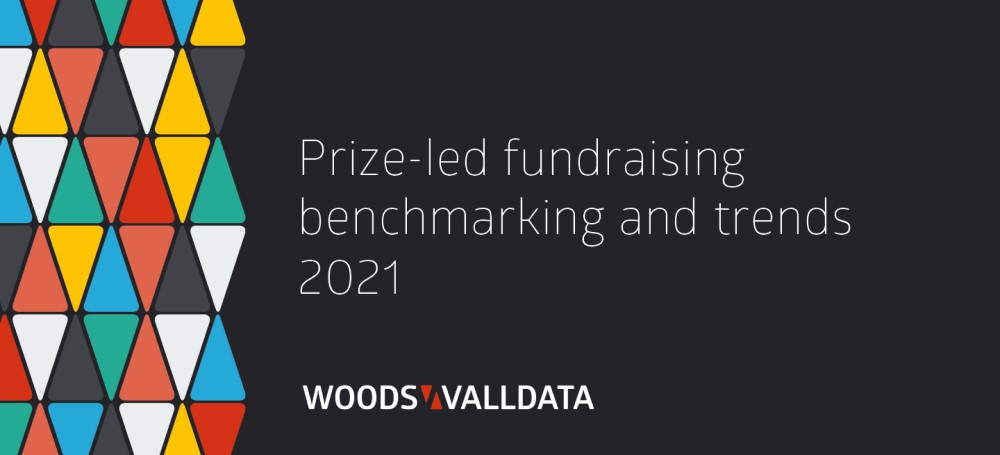
Prize-led fundraising benchmarking and trends 2021
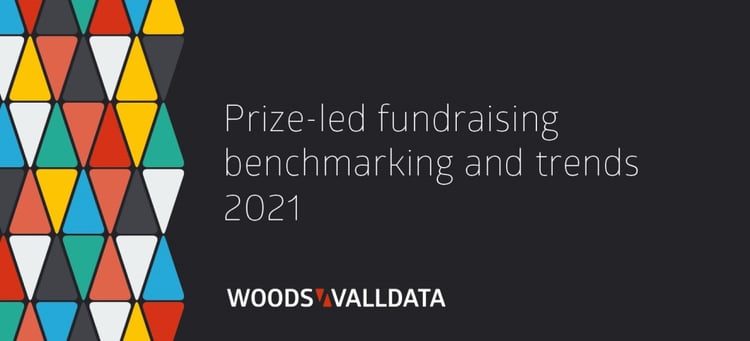
Raffles and lotteries have become a mainstay of the charity fundraising mix.
Charities like the Air Ambulance service among others include these in their fundraising endeavours for a variety of reasons, such as to increasing their donors’ lifetime value and diversifying their supporter base.
According to the Gambling Commission, there are now over 600 licensed raffles and lotteries, who generated a sum of over £831m in sales in the year up to March 2020. Of this, £367m went to good causes - a 10.7% increase on the previous year.
It’s therefore quite easy to see why raffle and lottery are becoming such significant charity fundraising trends!
What is prize-led fundraising?
The most widely used forms of prize-led fundraising are raffles and lotteries. Others include, but are not limited to; scratch cards, event-based draws, free prize draws and tombola. We’re focusing on raffles and weekly lottery for the purposes of this blog.
The Cambridge Dictionary define raffle and weekly lottery as:
Raffle: An activity in which people buy tickets with different numbers, some of which are later chosen to win prizes, that is organized in order to make money for a good social purpose
Lottery: A game, often organized by the state or a charity in order to make money, in which tickets with numbers are sold to people who then have a chance of winning a prize if their number is chosen
In charity fundraising, we would more commonly differentiate them as:
Raffle: A campaign cash-based giving product with a draw on a given date where people buy one or more tickets (most commonly £1 or £2 each) to be in with the chance to win one or more of a set number of prizes - click here for a further definition in our glossary!.
(Weekly) Lottery: A regular giving product with regular (weekly) draws where people buy one or more chances (most commonly £1 each) to win a set number of prizes. - click here for a further definition in our glossary!
Maria Novell, Fundraising and Commercial Director at Guide Dogs talks about the benefits of raffle and weekly lottery in providing sustainable income for the charity.
They offer the opportunity to introduce a good news story to communications, are fun, and mean you can give something back to supporters in return for their support.
What's more, especially in times of recession, this ‘give-and-get’ format makes them an attractive proposition for retention and acquisition.

Why prize-led fundraising?
Simply put:
- raffle and weekly lottery deliver a great return on investment (ROI) – consistently exceeding a 2:1 return
- it helps diversify your supporter base, often with a younger, more prize-oriented demographic
- it provides a different way to support your cause for existing donors, increasing lifetime value
- it works effectively with other fundraising products. Raffle is a great ‘feeder’ product for legacy.
- weekly lottery works well as a drop-ask for regular giving programmes
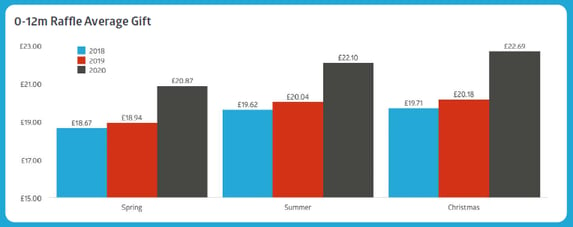
What’s more, lottery attrition rates for 2020 are significantly below 2019 levels as a percentage:

How do you make the most of your prize-led fundraising activity?
1. Set objectives and build a plan
No programme will be successful if we don’t know what we’re trying to achieve. Be clear on your prize-led fundraising objectives, strategy and approach. Have a plan, referring to charity fundraising trends where possible. Use your budget wisely by focusing on the areas which will best deliver to your objectives.
2. Invest for long-term returns
Prize-led fundraising does not exist in a vacuum, and it does not run itself. By investing your time and budget into your raffle and/or weekly lottery programmes, you will ensure you get long-lasting returns.
3. Test to learn and improve
Testing means you will continuously improve your programmes. Simple changes can often reap large rewards! Integrate a test into every campaign and act on significant results.
Raffle benchmarks and trends
The value of raffle continues to rise over the years. 2020 has seen a significant increase in average gift and response rate with ROI for 0-12m raffle segments above 6:1 on average and average gifts exceeding £20.
We’re seeing an increase in online play at just over 13% vs postal response for traditional campaigns, which has increased from around 9.5% last year. Average gifts are slightly lower online at just under £16.
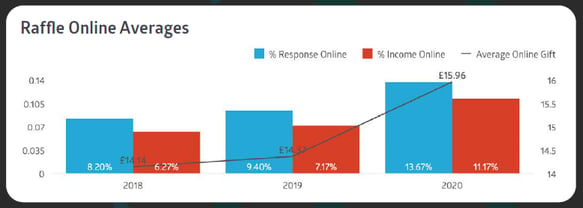
Weekly lottery benchmarks and trends
At the start of the pandemic, there was concern that regular giving products, such as weekly lottery, would suffer. People were tightening their belts and cancelling direct debits. Instant removal of traditional acquisition channels via face-to-face and retail was impacting longer-term value.
In March 2020, there was a spike in DD cancellations as people knee-jerked due to COVID-19 (find out more about this in our series on the impact of COVID-19 on individual giving).
Throughout the rest of the year, however, as a result of the generosity of the public and the ingenuity of the fundraising community, weekly lottery held its own. Attrition fell from 27% in 2019 to 18% in 2020 and 4.25% more players were recruited overall than in the previous year:
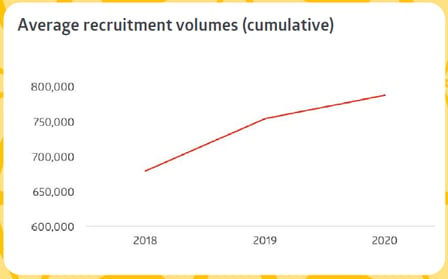
Acquisition channels diversified in 2020 including increased use of DRTV and digital. The expectation is that an increased use of these channels will remain in 2021.
What does the future look like for prize-led fundraising?
Over the coming years we predict:
- The re-introduction of free prize draws to boost acquisition of prize-motivated supporters.
- Increased cold, partially addressed mail and lapsed supporter mailings, as these are responding well right now.
- More targeted and bespoke communications across all channels, including targeted creative.
- Continued acceleration of digital, supported by traditional channels such as F2F and Direct Mail.
- A focus on stewardship and retention to optimise ROI and LTV.
Looking to maximise the impact of your prize-led fundraising initiatives?
Woods Valldata have been supporting our charity partners to develop and grow their prize-led fundraising for over 20 years. Contact us to find out how we can deliver more for your raffle and weekly lottery today!
In the meantime, if you’d like to discover more insightful prize-led charity fundraising trends and benchmarks, be sure to watch the webinar.
Categories
- charity fundraising (55)
- Income Generation for Charities (43)
- Lottery (41)
- Raffle (37)
- Appeal response handling (33)
- Response Handling (31)
- fundraising insights (24)
- charity gaming (20)
- Fulfilment (18)
- charity insights (17)
- charity raffle (17)
- Compliance (12)
- creating a fundraising strategy (12)
- Company News (11)
- benchmarks (10)
- Direct Debit (9)
- Services (8)
- Gambling Act (5)
- supporter experience (1)
Archives
- March 2020 (5)
- May 2022 (4)
- October 2022 (4)
- January 2023 (4)
- June 2023 (4)
- May 2024 (4)
- June 2024 (4)
- January 2026 (4)
- March 2021 (3)
- April 2021 (3)
- July 2023 (3)
- August 2023 (3)
- April 2024 (3)
- July 2024 (3)
- November 2025 (3)
- June 2020 (2)
- August 2020 (2)
- October 2020 (2)
- November 2020 (2)
- November 2021 (2)
- January 2022 (2)
- February 2022 (2)
- February 2023 (2)
- March 2023 (2)
- September 2023 (2)
- December 2023 (2)
- February 2024 (2)
- March 2024 (2)
- February 2025 (2)
- July 2025 (2)
- December 2025 (2)
- June 2015 (1)
- November 2017 (1)
- February 2020 (1)
- April 2020 (1)
- May 2020 (1)
- July 2020 (1)
- September 2020 (1)
- May 2021 (1)
- June 2021 (1)
- August 2021 (1)
- September 2021 (1)
- October 2021 (1)
- December 2021 (1)
- March 2022 (1)
- April 2022 (1)
- June 2022 (1)
- July 2022 (1)
- August 2022 (1)
- September 2022 (1)
- December 2022 (1)
- May 2023 (1)
- October 2023 (1)
- November 2023 (1)
- January 2024 (1)
- September 2024 (1)
- January 2025 (1)
- March 2025 (1)
- September 2025 (1)
- October 2025 (1)
- February 2026 (1)
